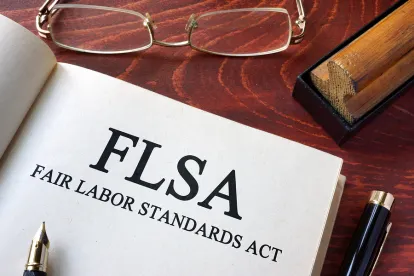Following the flood of employee-friendly legislation during the Virginia General Assembly’s 2020 session, which included a significantly strengthened wage payment law that we previously discussed, the 2021 session resulted in the passage of yet another new wage-related law that employers need to be aware of. This new law – the “Virginia Overtime Wage Act” – goes into effect on July 1, 2021 and will usher in the first overtime pay requirement in Virginia’s history.
The new Virginia overtime law largely mirrors the federal Fair Labor Standards Act’s (FLSA) overtime requirement and its mandate that an employer pay non-exempt employees one and one half times their regular rate of pay for hours worked in excess of 40 in any workweek. The new law relies on similar exemptions, and it also borrows from the FLSA by permitting employees to pursue collective actions for overtime violations.
However, a few key provisions make Virginia’s overtime law different from, and more punitive than, the FLSA:
-
Longer Statute of Limitations. The new Virginia law provides a 3-year statute of limitations for overtime claims – a full year longer than the FLSA’s default 2-year period. Under the FLSA, a 3-year limitations period is only available if the plaintiff can prove a willful violations. Under Virginia’s law, all violations are subject to the 3-year statute of limitations.
-
Double and Treble Damages Available. Under the FLSA, an employer can avoid double (e., liquidated) damages if it can prove that its violation was in good faith. Under the new Virginia overtime law, all violations are subject to double damages. Moreover, a plaintiff-employee can obtain triple damages if he or she can prove a “knowing” violation.
-
More Nuanced Calculation of Regular Rate of Pay. Under the FLSA, a salaried, non-exempt employee’s regular rate of pay is calculated by dividing the weekly salary by the number of hours that the salary was intended to cover. Though this divisor is often 40 hours, it is sometimes a higher number of hours, or even a fluctuating number of hours, depending on the understanding reached between the employee and employer. Under the new Virginia law, however, a salaried, non-exempt employee’s regular rate must always be calculated by dividing the weekly salary by 40, regardless of whether the parties intended the salary to cover a greater number of hours. For hourly, non-exempt employees, the new Virginia law mirrors the FLSA’s regular rate calculation and provides that the regular rate of pay is calculated by dividing the straight-time compensation paid to the employee at the applicable hourly rate plus any other non-overtime wages by the total number of hours worked in the workweek.
In sum, Virginia’s new overtime law will subject Virginia employers to overtime lawsuits using a longer statute of limitations and more significant penalties than the FLSA. This risk is multiplied by the availability of a collective action brought in a Virginia state court, where summary judgment is rarely granted and judges are not as accustomed to addressing overtime claims as federal judges. As a result, Virginia employers should review their exemption classifications and overtime pay practices to avoid running afoul of the new overtime law and subjecting themselves to a collective action in which they could be ordered to pay triple damages.






 />i
/>i
